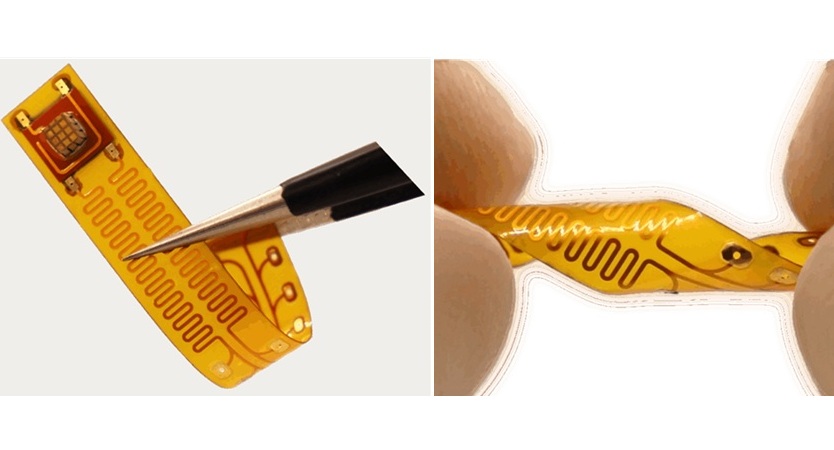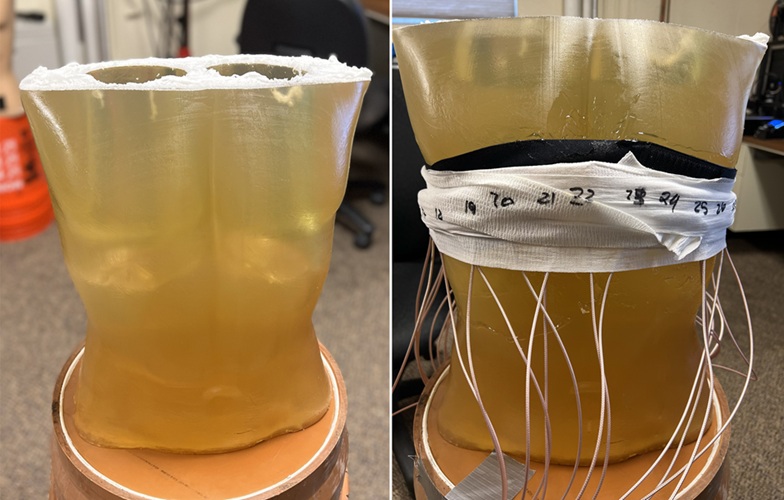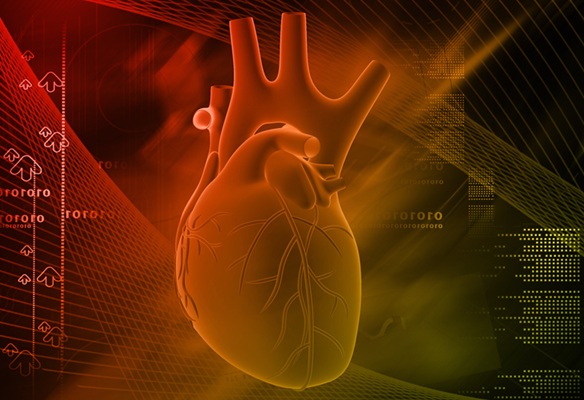AI X-Ray Diagnostic Tool Offers Rapid Pediatric Fracture Detection
|
By MedImaging International staff writers Posted on 10 Sep 2024 |

The increasing demand for emergency imaging has led to a surge in the use of traditional X-rays, especially for assessing traumatic injuries. Conventional X-ray still remains the first radiological test for suspected fractures. Yet, identifying fractures in X-rays in the emergency room (ER) is challenging, particularly due to the constant influx of patients around the clock and the dependence on less experienced radiologists for initial assessments. Deep learning (DL) algorithms offer the potential to enhance fracture detection by radiologists and ER physicians. Now, a new generation of software based on DL technology can aid the accurate diagnosis of fractures and reduce diagnostic errors.
AZmed’s (Paris, France) Rayvolve is a computer-assisted detection and diagnosis software device capable of detecting fractures on standard X-rays, allowing doctors to save time and increase diagnosis accuracy. Rayvolve detects and automatically ranks X-rays that show signs of abnormalities, allowing radiologists to prioritize these cases in their workflow. Rayvolve has now achieved 510(k) clearance from the U.S. Food and Drug Administration (FDA) for its use in pediatric fracture detection, following its prior clearance for adult applications. This approval was bolstered by an independent study that affirmed Rayvolve's effectiveness in a clinical setting, analyzing a dataset of 3,000 pediatric radiographs. The study highlighted Rayvolve's high sensitivity (96%) and specificity (86%), marking it as one of the most proficient tools for assisting radiologists in spotting fractures in children, with an Area Under the Curve (AUC) of 94%.
This FDA clearance marks a significant expansion opportunity for AZmed in the U.S. medical imaging market. The company's strategy to introduce Rayvolve to more U.S. healthcare providers is aimed at refining traditional diagnostic approaches by accelerating fracture detection and mitigating the effects of clinician fatigue and workload. As Rayvolve becomes more widely adopted, AZmed continues to invest in the development of AI-based, clinically validated technologies that enhance both patient care and healthcare operational efficiency.
"The 510(k) clearance reflects our commitment to meeting the needs of healthcare professionals," said Julien Vidal, CEO of AZmed. "We are excited to extend our innovation to pediatric care, empowering clinicians with advanced tools to achieve the best outcomes for their patients."
Related Links:
AZmed
Latest Radiography News
- AI Detects Fatty Liver Disease from Chest X-Rays
- AI Detects Hidden Heart Disease in Existing CT Chest Scans
- Ultra-Lightweight AI Model Runs Without GPU to Break Barriers in Lung Cancer Diagnosis
- AI Radiology Tool Identifies Life-Threatening Conditions in Milliseconds

- Machine Learning Algorithm Identifies Cardiovascular Risk from Routine Bone Density Scans
- AI Improves Early Detection of Interval Breast Cancers
- World's Largest Class Single Crystal Diamond Radiation Detector Opens New Possibilities for Diagnostic Imaging
- AI-Powered Imaging Technique Shows Promise in Evaluating Patients for PCI
- Higher Chest X-Ray Usage Catches Lung Cancer Earlier and Improves Survival
- AI-Powered Mammograms Predict Cardiovascular Risk
- Generative AI Model Significantly Reduces Chest X-Ray Reading Time
- AI-Powered Mammography Screening Boosts Cancer Detection in Single-Reader Settings
- Photon Counting Detectors Promise Fast Color X-Ray Images
- AI Can Flag Mammograms for Supplemental MRI
- 3D CT Imaging from Single X-Ray Projection Reduces Radiation Exposure
- AI Method Accurately Predicts Breast Cancer Risk by Analyzing Multiple Mammograms
Channels
MRI
view channel
New MRI Technique Reveals Hidden Heart Issues
Traditional exercise stress tests conducted within an MRI machine require patients to lie flat, a position that artificially improves heart function by increasing stroke volume due to gravity-driven blood... Read more
Shorter MRI Exam Effectively Detects Cancer in Dense Breasts
Women with extremely dense breasts face a higher risk of missed breast cancer diagnoses, as dense glandular and fibrous tissue can obscure tumors on mammograms. While breast MRI is recommended for supplemental... Read moreUltrasound
view channel
Wireless Chronic Pain Management Device to Reduce Need for Painkillers and Surgery
Chronic pain affects millions of people globally, often leading to long-term disability and dependence on opioid medications, which carry significant risks of side effects and addiction.... Read more
New Medical Ultrasound Imaging Technique Enables ICU Bedside Monitoring
Ultrasound computed tomography (USCT) presents a safer alternative to imaging techniques like X-ray computed tomography (commonly known as CT or “CAT” scans) because it does not produce ionizing radiation.... Read moreNuclear Medicine
view channel
Novel Bacteria-Specific PET Imaging Approach Detects Hard-To-Diagnose Lung Infections
Mycobacteroides abscessus is a rapidly growing mycobacteria that primarily affects immunocompromised patients and those with underlying lung diseases, such as cystic fibrosis or chronic obstructive pulmonary... Read more
New Imaging Approach Could Reduce Need for Biopsies to Monitor Prostate Cancer
Prostate cancer is the second leading cause of cancer-related death among men in the United States. However, the majority of older men diagnosed with prostate cancer have slow-growing, low-risk forms of... Read moreGeneral/Advanced Imaging
view channel
CT Colonography Beats Stool DNA Testing for Colon Cancer Screening
As colorectal cancer remains the second leading cause of cancer-related deaths worldwide, early detection through screening is vital to reduce advanced-stage treatments and associated costs.... Read more
First-Of-Its-Kind Wearable Device Offers Revolutionary Alternative to CT Scans
Currently, patients with conditions such as heart failure, pneumonia, or respiratory distress often require multiple imaging procedures that are intermittent, disruptive, and involve high levels of radiation.... Read more
AI-Based CT Scan Analysis Predicts Early-Stage Kidney Damage Due to Cancer Treatments
Radioligand therapy, a form of targeted nuclear medicine, has recently gained attention for its potential in treating specific types of tumors. However, one of the potential side effects of this therapy... Read moreImaging IT
view channel
New Google Cloud Medical Imaging Suite Makes Imaging Healthcare Data More Accessible
Medical imaging is a critical tool used to diagnose patients, and there are billions of medical images scanned globally each year. Imaging data accounts for about 90% of all healthcare data1 and, until... Read more
Global AI in Medical Diagnostics Market to Be Driven by Demand for Image Recognition in Radiology
The global artificial intelligence (AI) in medical diagnostics market is expanding with early disease detection being one of its key applications and image recognition becoming a compelling consumer proposition... Read moreIndustry News
view channel
GE HealthCare and NVIDIA Collaboration to Reimagine Diagnostic Imaging
GE HealthCare (Chicago, IL, USA) has entered into a collaboration with NVIDIA (Santa Clara, CA, USA), expanding the existing relationship between the two companies to focus on pioneering innovation in... Read more
Patient-Specific 3D-Printed Phantoms Transform CT Imaging
New research has highlighted how anatomically precise, patient-specific 3D-printed phantoms are proving to be scalable, cost-effective, and efficient tools in the development of new CT scan algorithms... Read more
Siemens and Sectra Collaborate on Enhancing Radiology Workflows
Siemens Healthineers (Forchheim, Germany) and Sectra (Linköping, Sweden) have entered into a collaboration aimed at enhancing radiologists' diagnostic capabilities and, in turn, improving patient care... Read more















.jpeg)




